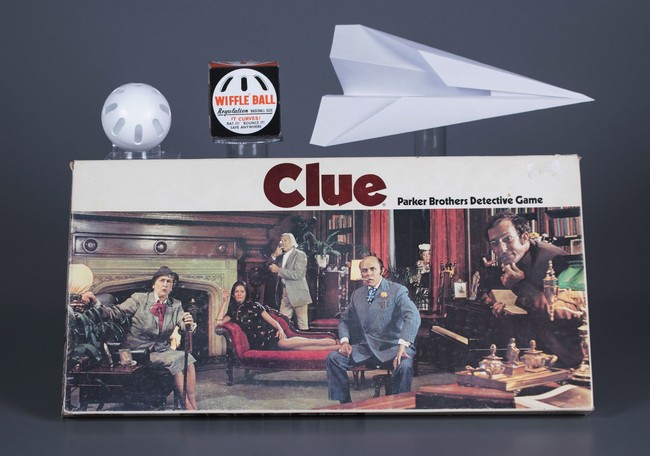NYT Explains Disney’s $16M Voyage of (No) Discovery
This post was originally published on this site

Don’t you just hate when you get to the end of a whodunit only to find out that the most obvious suspect turned out to be the villain? When it does indeed turn out to be the butler who did it all along?
Advertisement
Prepare thusly for the New York Times’ report on Disney’s decision to pay $16 million and throw in the towel on Donald Trump’s defamation suit. Brooke Barnes dispels the notion that this has to do with meta-strategy for the next four years or a desire to bend the knee to Trump. Instead, the deciding factor was “the butler” we all suspected, and the biggest clue was also the most accurate one:
On Friday, Judge Altonaga dealt Disney another setback. She rejected requests to delay the case and ordered near-immediate depositions for Mr. Trump and Mr. Stephanopoulos. Moreover, Disney was also told to turn over “all remaining documents” related to the case — including pertinent emails and text messages sent by and to Mr. Stephanopoulos — by Sunday.
Disney responded by opening settlement talks. By Friday night, the two sides had reached a deal. The company agreed to donate $15 million to Mr. Trump’s future presidential foundation and museum. Mr. Stephanopoulos and ABC News published a statement saying they “regret” remarks made about Mr. Trump during the March broadcast. The news network also agreed to pay Mr. Trump an additional $1 million in legal fees.
Aha! It was Discovery in the Library with the Lead Pipe! Once Disney discovered that ABC would have to open its books, and especially its internal communications, they leapt into action. It only took hours for them to come up with a cash offer to get Trump to settle. That has to be some sort of record in media-defamation litigation — and it strongly suggests that the $16 million and “regret” statement would do a lot less damage to Disney than they would have suffered with the release of those communications.
Advertisement
As Wilford Brimley drily noted in Absence of Malice: “Wonderful thing, subpoenas.” That was from Columbia Pictures, of course, now a division of Disney rival Sony Pictures. Ironically, if there had been an absence of malice in Stephanopoulos’ remarks, Disney would be $16 million richer. The rush to settle indicates a large level of discoverable malice lurked within those communications.
But wait! There’s more! Discovery had an accomplice, as it turns out, although the accomplice is also no surprise at all. Add in Sullivan in the Hallway with a dagger aimed at the heart of the entire media industry:
In the worst-cast scenario, Disney concluded, fighting the case could lead to the Supreme Court and become a vehicle for Mr. Trump and his allies to overturn the landmark First Amendment decision in New York Times v. Sullivan. That 1964 ruling, as well as a handful of subsequent cases, made it much harder for public figures like Mr. Trump to win libel lawsuits.
Disney’s legal team, headed by Mr. Gutierrez, ultimately decided that settling, even with the inevitable negative headlines, was the best outcome — that $16 million was a small price to pay for resolving a tricky case.
Disney’s attorneys must have read recent dissents from Clarence Thomas and Neil Gorsuch about the need to reverse the Sullivan doctrine on defamation. That in itself may have a salutary impact on media reporting, which until very recently) has been filled with dishonest impunity regarding Trump and other Republicans. These media companies can’t afford to allow the Supreme Court an opportunity to revisit Sullivan and remove their “actual malice” hyper-defense against defamation regarding “public persons,” even when those people are government officials.
Advertisement
This is also amusing, given the evolution of Disney on its own home turf:
The company was concerned that a jury in Florida — a deep-red state that Mr. Trump carried by 13 points in the election last month — would side with the president-elect and potentially award him a sizable sum exceeding what it would cost to settle.
Not so very long ago at all, Disney might have fought hard to get a Florida jury involved in a defamation lawsuit. They used to own Florida in terms of public relations, at least until Bob Iger et al decided to go woke and go political against parents and Republicans in the state. They made Ron DeSantis an enemy and ended up paying a very high cost for it, both in terms of financial cost and in public affection in Florida and elsewhere.
The fact that Iger now has to fear Florida jury pools explains a lot not just about this settlement but also Disney’s other moves, including the one that David wrote about earlier today. The world is healing, indeed. Now let’s see if Iger and other media outlets take the real lesson from this episode and start weeding out political activists from the ranks of “reporters” and news hosts — an industry trend that is actually the real villain in this case.
Advertisement
